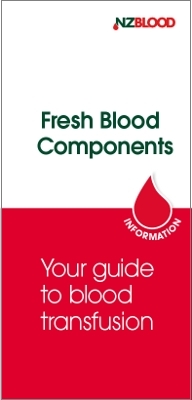As with any prescribed drug, the patient must receive adequate information as to
- the reasons for the transfusion
- the risks
- the benefits
- the alternatives
- the consequences if the transfusion is not received
When consent is obtained for surgery/anaesthetic, consider obtaining consent for the use of blood components or products at the same time. This is especially important if, in the particular circumstances, there is a 1% chance or more, of blood components or products being required.
Where blood components and products are refused by an adult for any reason, this decision must be respected, ensuring that those making the decision fully understand the implications this may have on the clinical outcome.
When this decision is made by one or more people on behalf of another who is not capable of making the decision, such as in the case of a minor, there is provision for the decision to be legally challenged.
When situations such as this occur, refer to the Informed Consent Policy for specific details. In these situations it is also recommended that discussions be held with the Clinical Director of the Department involved and/or one of the Medical Advisors.
In order to assist with the process of informed consent, NZBS provide a number of leaflets to be given to patients to aid understanding about risks and benefits of the transfusion of blood components and products. These leaflets can be ordered from ordered directly from BOP stores.

Available in:
English
Chinese
French
Korean
Samoan
Te Reo Maori
Easy read Child-friendly
